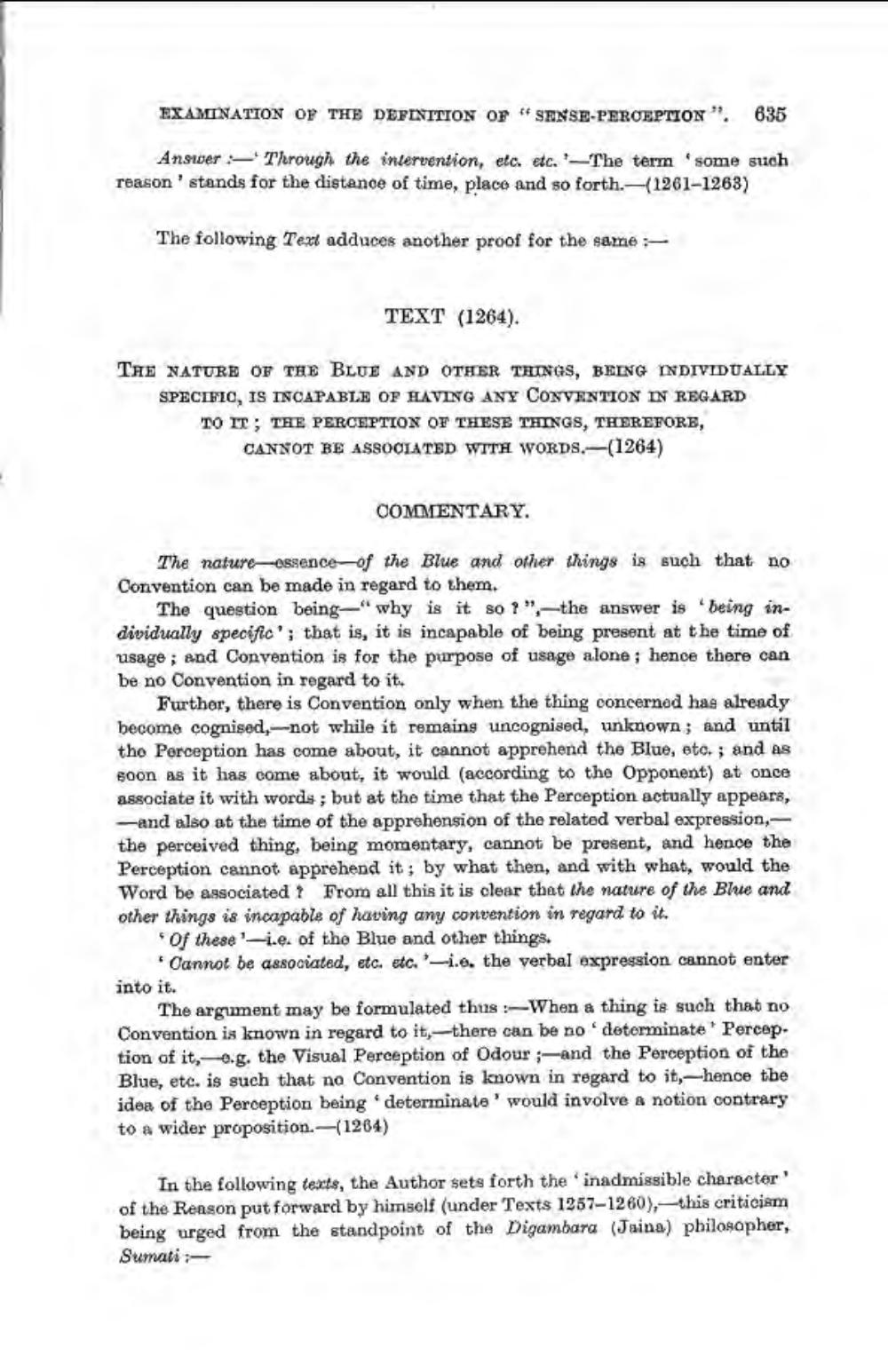________________
EXAMINATION OF THE DEFINITION OF " SENSE-PERCEPTION". 635
Answer - Through the intervention, etc. etc. -The term 'some such reason' stands for the distance of time, place and so forth.-(1261-1263)
The following Text adduces another proof for the same
TEXT (1264).
THE NATURE OF THE BLUE AND OTHER THINGS, BEING INDIVIDUALLY SPECIFIC, IS INCAPABLE OF HAVING ANY CONVENTION IN REGARD TO IT; THE PERCEPTION OF THESE THINGS, THEREFORE,
CANNOT BE ASSOCIATED WITH WORDS,(1264)
COMMENTARY
The nature-essence-of the Blue and other things is such that no Convention can be made in regard to them.
The question being—"why is it so?",-the answer is being individually specific'; that is, it is incapable of being present at the time of usage; and Convention is for the purpose of usage alone ; hence there can be no Convention in regard to it.
Further, there is Convention only when the thing concerned has already become cognised, --not while it remains uncognised, unknown; and until the Perception has come about, it cannot apprehend the Blue, etc.; and as soon as it has come about, it would (according to the Opponent) at once associate it with words; but at the time that the Perception actually appears, -and also at the time of the apprehension of the related verbal expression, the perceived thing, being momentary, cannot be present, and hence the Perception cannot apprehend it; by what then, and with what, would the Word be associated ? From all this it is clear that the nature of the Blue and other things is incapable of having any convention in regard to it.
of these'-i.e of the Blue and other things.
'Cannot be associated, etc. etc.'-i.e. the verbal expression cannot enter into it.
The argument may be formulated thus:--When a thing is such that no Convention is known in regard to it,-there can be no determinate Percep. tion of it,-.g. the Visual Perception of Odour ;-and the Perception of the Blue, etc. is such that no Convention is known in regard to it,-hence the idea of the Perception being determinate' would involve a notion contrary to a wider proposition.-(1284)
In the following texts, the Author sets forth the inadmissible character of the Reason put forward by himself (under Texts 1257-1260),—this criticism being urged from the standpoint of the Digambara (Jaina) philosopher, Sumati :




